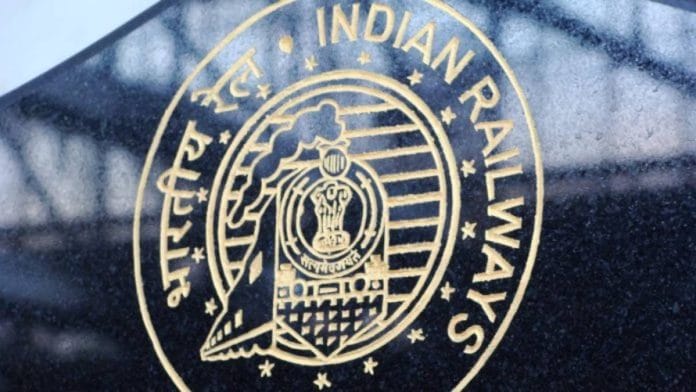New Delhi: In a move that could have widespread implications for the railway bureaucracy, the Railway Board has asked the Centre to significantly tweak the eligibility criteria for general managers (GM) in railway zones, ThePrint has learnt.
According to sources in the railways, the board last month sent a proposal to the Department of Personnel and Training (DoPT), according to which only those officers who have two years of service remaining should be considered for the post of GM.
GM is the highest rank in the railway bureaucracy—equivalent to chief secretary in the Indian Administrative Service (IAS) or Director General of Police (DGP) in the Indian Police Service (IPS)—at the level of zones. The Indian Railways is divided into 18 zones.
While no such minimum-tenure rule exists for the position of chief secretary, IPS officers must have a minimum of six months of service left to become a DGP.
“In no other service does a two-year rule exists,” an officer said on the condition of anonymity. “This could lead to a lot of trouble within the railway hierarchy because there will be so many senior officers who would have to serve under their junior just because they did not have two years left in service.”
ThePrint tried to contact the railway ministry spokesperson via phone call for a comment on the proposal, but there was no response.
There are also whispers that any such move may heighten the infamous departmentalism within the railways.
Officers say that if the proposal is implemented, it would adversely impact the career progression of civil servants—officers from the accounts, traffic and personnel departments of the railways—and benefit the officers in engineering services.
Civil service officers enter service through the Civil Service Examination of the Union Public Service Commission (UPSC), while engineering service officers enter through the Engineering Services Examination.
It is widely believed that officers of the civil services enter the service at later ages than those of the engineering service. Therefore, it is feared that the move could be a major disadvantage to the former, several of whom will be disqualified from the highest post in the railway zones.
“The move could completely wipe out the civil services from the highest rank of the railways in the zones,” a second officer said on the condition of anonymity. “This would be very unfortunate since officers of the civil services have enormous experience in dealing with the people and human resource aspects of the railways.”
The move could thwart several high-calibre officers from ever occupying the top post just because they don’t have two years’ residual service, another officer said. “The government was first considering a proposal to make quotas for every service, but now this clause has been proposed, which will virtually keep all civil service officers out,” the officer added.
A senior UPSC functionary, who did not want to be named, agreed that civil servants enter government service a few years later than engineering service officers.
“While we don’t immediately have the data, we can say with certainty that engineering officers are on average a few years younger, as most people who take the engineering exam get in in one or two attempts. Unlike in the civil service, they don’t keep trying four-five times,” he said.
(Edited by Nida Fatima Siddiqui)
Also Read: Two railways privatisation models for India to learn from—UK & Japan






